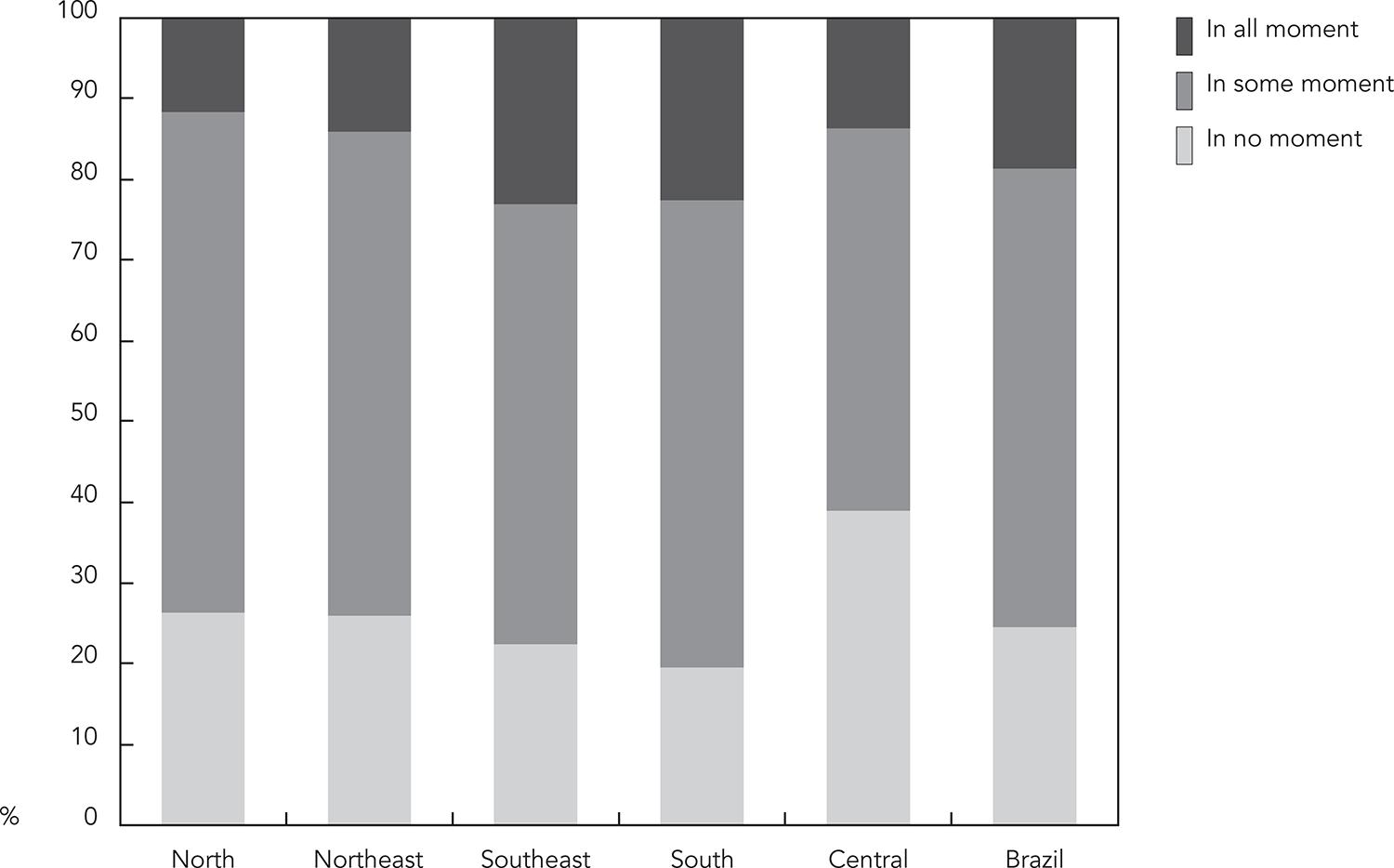Robust evidence of the benefits of continuous support during childbirth led to the recommendation that it should be offered for all women. In Brazil, it has been guaranteed by law since 2005, but scarce data on implementation is available. We aimed to estimate the frequency and associated socio-demographic, obstetric and institutional predictors of women having companionship during childbirth in the Birth in Brazil survey. Descriptive statistical analysis was done for the characterization of companions (at different moments of hospital stay), maternal and institutional factors; associations were investigated in bivariate and multivariate models. We found that 24.5% of women had no companion at all, 18.8% had continuous companionship and 56.7% had partial companionship. Independent predictors of having no or partial companionship at birth were: lower income and education, brown color of skin, using the public sector, multiparity, and vaginal delivery. Implementation of companionship was associated with having an appropriate environment, and clear institution al rules about women’s rights to companionship.
Medical Chaperones; Midwifery; Maternal and Child Health; Parturition

